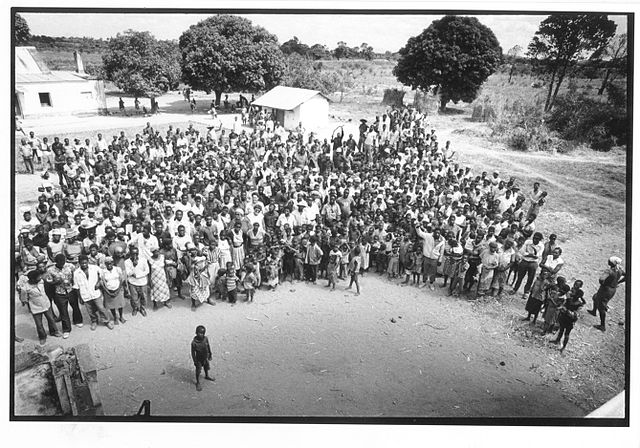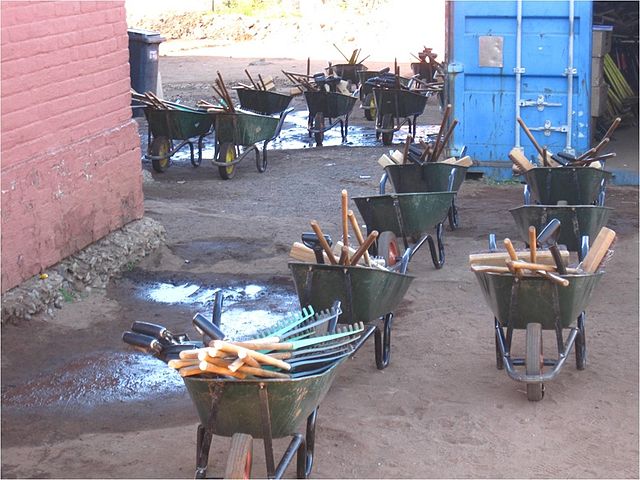The Organization workshop (OW) – or "Laboratorio Organizacional" (LO) in both Portuguese and Spanish – is a CHAT-based learning event where participants master new organizational as well as social knowledge and skills through a learning-by-doing approach. It is aimed at large groups of unemployed and underemployed, a large number of whom sometimes may be persons with lower levels of education (LLEs). The OW addresses locally identified problems which can only be solved by collaborating groups. During a Workshop participants form a temporary enterprise which they themselves manage, an enterprise which contracts to do work at market rates. Once the workshop temporary enterprise is over, organizational, management and vocational skills gained can be used to form new businesses or social enterprises.
Part of the group of 850 who took part in the 1992 Matzinho "field" organization workshop (FOW), in war-torn Mozambique
Part of the shared resource base ('Inventory') at the Ntambanana OW (South Africa) November 2012
OWfreedomtoorganizewithinlaw
Vocational skills course during the Laurel OW (Costa Rica) Nov 2005
Cultural-historical activity theory
Cultural-historical activity theory (CHAT) is a theoretical framework which helps to understand and analyse the relationship between the human mind and activity. It traces its origins to the founders of the cultural-historical school of Russian psychology L. S. Vygotsky and Aleksei N. Leontiev. Vygotsky's important insight into the dynamics of consciousness was that it is essentially subjective and shaped by the history of each individual's social and cultural experience. Especially since the 1990s, CHAT has attracted a growing interest among academics worldwide. Elsewhere CHAT has been defined as "a cross-disciplinary framework for studying how humans purposefully transform natural and social reality, including themselves, as an ongoing culturally and historically situated, materially and socially mediated process". Core ideas are: 1) humans act collectively, learn by doing, and communicate in and via their actions; 2) humans make, employ, and adapt tools of all kinds to learn and communicate; and 3) community is central to the process of making and interpreting meaning – and thus to all forms of learning, communicating, and acting.

First Generation CHAT
Second Generation CHAT
Third-generation CHAT







